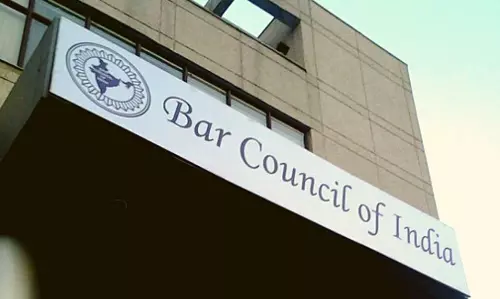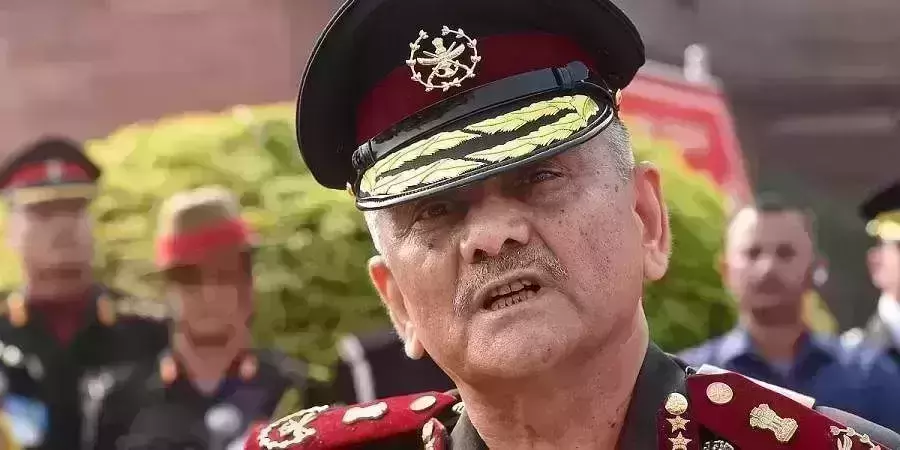
Muzaffarnagar riot victims: Neither hope nor justice
text_fieldsMuzaffarnagar: Salim has truned 66 and his brother Naseem 70. Salim now lives in a state of shock and does not talk to anyone but weeps often. Naseem has lost his mental balance.Both of them belong to the Kaval village which has got a bad name due to the riots. Salim is the father of that young man named Shahnawaz, who was murdered on the first day in Kaval village. Naseem is the father of those two young men who were framed for the murder of Gaurav and Sachin. Both are tired.
The four sons of these two men are serving life sentence of imprisonment. Both of them lie down in a corner of their homes lost in gloominess and shedding tears. New decisions have come up in the cases of Muzaffarnagar riots this year. One of them is a matter related to the murder of Gaurav and Sachin. Deceased Shahnawaz’s four brothers have been sentenced to life imprisonment in this case. They have been in the lock up ever since the riots and were not even granted bail.
On the other hand, those accused in the murder of Shahnawaz have been given clean chit by the police. After a tough battle in the court they came out on bail within a month.
Shahnawaz’s father Saleem says “He has never ever faced such injustice at any time in his life. Those who murdered my son were killed by a mob. And my other sons had returned from Vallar, Chennai. And as soon as they came the police made them criminals. They are now imprisoned. Nobody heard us. We fought for 5 years for justice for my sons. And those who killed my son, Shahnawaz got bail in 15 days.”
Saleem’s elder brother’s condition is even worse. He keeps ruffling the court papers very often and talks strangely screaming at times. He murmurs, “ I will never ever see my children free now”.
The riots of Muzaffarnagar has claimed more than 55 lives and nearly 100 houses were ransacked. And if one wants to understand the plight of the thousands who fled Kaval village, and if one has to see the difference of the justice meted to victims we have to see the difference between these two incidents wherein one party was imprisoned for life while the other got bail in 15 days while the police did nothing.
Why did this happen? One advocate Rao says, “In the court of law, decisions are made on the basis of facts and testimonies of witnesses. The police gather the facts. But the police take interest in some cases while in others they are influenced by politics. In the Kaval incident this is what has happened. The four brothers’ case could not stand and they were convicted while the other accused were acquitted”.
This is not limited to just the Kaval incident but in almost all the riot cases that occurred all over Muzaffarnagar. “All the accused are being acquitted by the court” Rao adds, “And things have come to such a pass that the accused may even dare to file cases of defamation against the victims”.
In Kidwainagar of Muzaffarnagar, one retired teacher says anonymously that the accused were assured by the Hindutva leaders that they would not be harmed even if they were arrested. And this is exactly what happened; they were released within a few days.
The cases filed by the police are being withdrawn by the Government. While in the cases filed by the victims, the accused are being acquitted for want of witness. While it is true that all serious cases of Muzaffarnagar have been closed, it is also true that both the parties have compromised.
A social worker of Muzaffarnagar says, "now there is some peace between both the parties and they done paperwork to pledge peace."
“The Jat community formed groups to save the accused from their community and adapted their own methods as to how they can save them from punishment. Many temporary offices were set up for this work which was done methodically. The moderate Jat community took their own decisions while the others forced their forced their decisions.”
As opposed to this, what did the Muslims do? Shahvez Khan from Khalapur says, “Muslims got busy collecting funds”. He tells that after the riots, “the Akhileshr government that was in power gave some Muslims good positions in his party and sent them as agents of damage control in the society.”
The Muslims leaders appointed by Akhilesh Yadav were opportunists and were more interested in their gains rather than helping the riot affected victims.
According to the leader of Samajwadi party, Farhad Alam, he has seen a crowd like this around Mulayam singh Yadav and the chief minister Akhilish Yadav. Some people were sent as MLCs and some got party positions.
Questions arise on Azam Khan who did not go even once to see the situation after the riots or to talk to the victims. President of the Pasmanda community, advocate Anjum Ali says, “Now that all the accused are freed, Akhilesh and Azam Khan are answerable as they were in power for the next 4 years. There is no complaint against the BJP but why did not these two leaders take the cases to the fast track courts? Who will answer? Who instigated the horrible riots? How did the people die? Did they commit suicide or did they burn their own houses?”
The local influential Muslim residents have also played a role in the decisions taken after the
Muzaffarnagar riots to prosecute the guilty. We can’t just blame the victims for not giving witness in the courts because these leaders influenced the victims and forced them to stay silent either through force, motivation or bribe.
Jamiat Ulema Hind leader Maulana Kasmi says, the whole story is of lobbying. Out of the 69 accused, 45 names were not even mentioned in the main chargesheet. And 24 were prosecuted and in these cases the witnesses turned hostile. The truth is that all these people are poor and helpless and they lost all confidence and courage.
There are two different outcomes in the two similar cases like, two people were killed in the Sadarpur town square, while returning from the Maha panchayat at Mucheda, Meerapur. And this trial is still going on against a dozen people of the Mucheda village.
After this incident in the nearby Sikrada village, Nadeem and Monu Querishi were murdered in Meerapur. And the accused in this case have been acquitted.
Nadeem’s uncle now lives in Kathoda village and his father went to Tevda village. His uncle Irshad hiding his pain says, "Nadeem had got married just 6 months before the riots. During the riots we had to flee from the village. And Nadeem was killed. His wife got compensation and also a government job. She left his aging parents and went away. Nadeem was their only son. They now live in a rehabilitation colony built for the riot victims in Tevda village. They hardly have any money to eat. In such circumstances how can they fight a court case. A local leader helped in compromise. What could do they do now? They had neither money nor any sources. Whatever they government gave them the daughter in law took away."
Congress women president BIilques Choudhry asks, "When the victims are weak, the governmen should stand with them. What did the police do then? "
Statistics show that the police did not even retrieve the weapons with which the people were killed. And all the cases were solely relying on the testimonies of the witnesses.
Even the strongest of the witnesses have been suppressed and most of them were all the weak, oppressed poor.
Bilques says, "One needs to see the entire situation apart from the witness and the questions. During the riots, one group of policemen were standing with the rioters openly supporting them. The pictures were all being published in the newspapers. In such situation nothing good can be expected from the police but what were the local leaders doing?"
“The most affected during the riots was the Budhana Vidhana Sabha. AT that time the SP leader was Nawazish Alam khan. His father, Ameer Alam, ex MLA’s name was in discussion the most. He was being accused of getting the DMSSP transferred by recommendation of AzamKhan.
Naeem Ahmed of Shahpur says, "I don’t think they have been of any help. During the entire time the riots took place, Nawazish Alam’s phone was switched off. The Muslims were being targeted and killed in all of the villages. But Nawazish Alam did not come to their help."
Akram Khan of Shahpur says, "Nawazish Alam’s image has never been communal. He has been trapped by a conspiracy and he has been trapped in this controversy and unable to come out of it even now."
It is not just Ameer Alam but even the people are upset with all the Muslim leaders even today. Wajid Tyagi of Chartaval says, "Kadir Rana has given 1 crore and a bunglow to Ajit Choudhry Singh to contest the elections. Now let him answer what kind of help has he tried to give to the riot victims?”
The riot affected victims believe that all the leaders have abandoned them. The survivors are now living in a big colony in a ghetto in Loi, on Shamili Road after coming from Phugana, Mohamedpur and Raisim villages. Jamiat Ulema have built this colony for them.
The residents from this Loi colony tell us a shocking fact that the people in this new place do not allow them to bury their dead. The refugees have to buy their own land. They are also looked down by the natives though in the beginning they were sympathetic.
This story is not just of the riot-affected victims in Lio but also of the people of Joula village. The VC of Aligarh Muslim University, Zameeruddin Shah, had announced that he would construct a school for the children of these refugees. And more than a crore rupees were spent to construct the school on the land donated by a farmer. But it is the children of the rich who are studying in the school now.
The member of the East Zila panchayat Mahbob Ali says, "The fees in this school is very high and the children of the refugees cannot afford this. The riot-affected people say we were poor in the village of the Jats and here also we are poor. The people of the village have helped us a lot. We do not have any complaints against anyone. Allah will avenge us”.
The first judgment in the incident of gang rape in the riots of Muzaffarnagar, the police had already made their onw final report. In the Malkapur camp of Kairana, some women had narrated the incidents of their rape.
They were all Muslim women and 7 of them had filed cases. One, Fatima (name changed) from Phaguna was raped by 4 men from her own village. She claimed that the rapists had threatened and tried to bribe her family.
Rehana Adeb, a NGO member, helped them to file their cases. The women were encouraged to come out with her help. The trial is going on in Muzaffarnagar and the accused go to the court in cars during the trial. The women are always being threatened. Their community also does not give them moral support. They believe that they are not being given justice.
On the other hand the accused have all the support from their community. Even though they are accused, they are not alone.
In Kutba, the constituency of Sanjeev Balyan, after the violence the residents of Shaahpur went to the refugees and called them back to the village.
Muntiyaz Saifi says, “ The accused came and greeted us ‘namaste’ and sat at the feet of the elders and requested us to come back to the village”.
"We understood what they meant. They did not want us to continue the case against them. We did not go back. But we do not even want to fight the case. What will we do fighting the case?"























